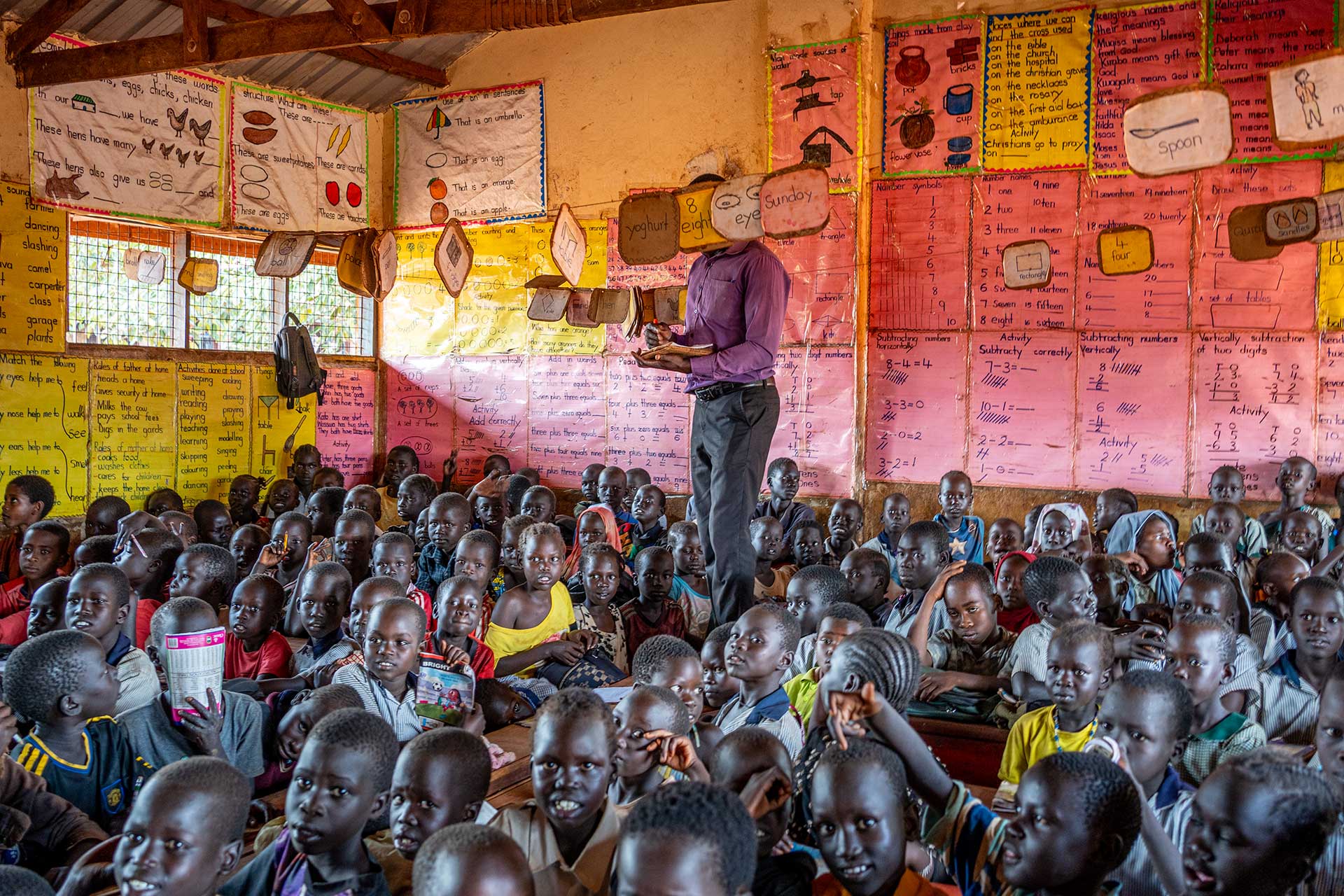“It was great to see with my own eyes how the system works” – FCA took seven members of parliament to Uganda
In the last week of October, Finn Church Aid (FCA) and the Helsinki Parish Union organised a trip to Uganda for seven members of the Finnish parliament. The MPs visited FCA and Women’s Bank projects in Mityana and Kiryandongo refugee settlement. The group also learned about FCA’s digital economy project (DICE) and met with FCA partner organisations, visited ministries and met the Speaker of the Ugandan Parliament.
Text & photos: Björn Udd
DURING THE WEEK-LONG TRIP to Uganda, the MPs visiting from the Finnish parliament were able to be first-hand witnesses to the consequences of the aid cuts made by the United States in the spring to its development cooperation. Karoliina Partanen, Deputy Chair of the National Coalition Party and MP, emphasised that Uganda and other developing countries need the support of countries such as Finland.
“There have been really big cuts in aid to Africa, and the effects of these cuts and the fear of what will happen next are really noticeable here in Uganda,” Partanen says.
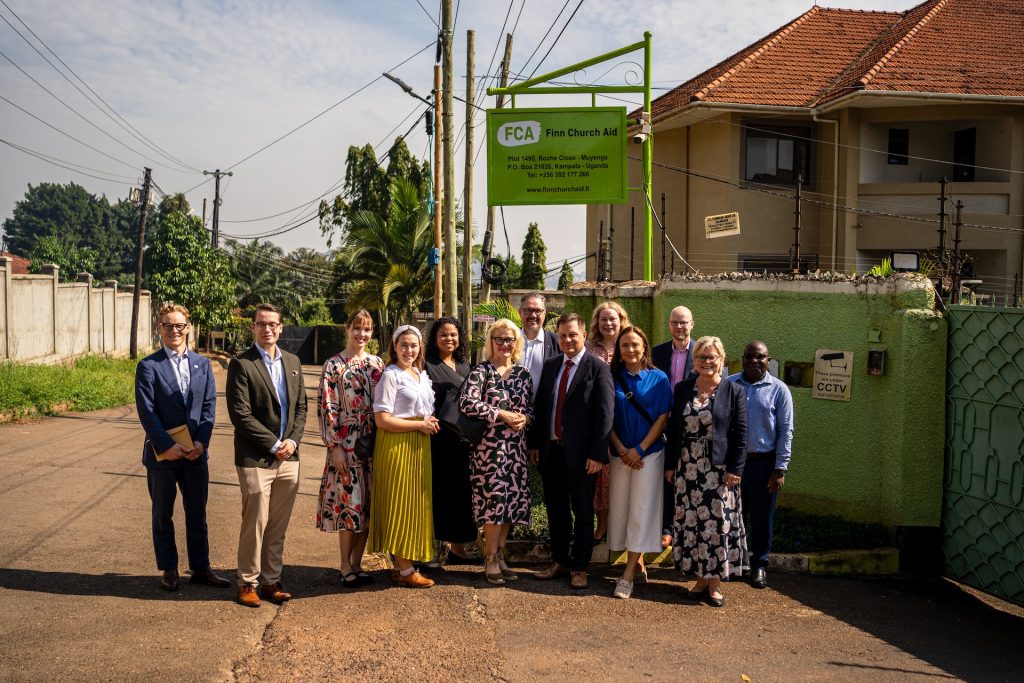
She took part in the trip, which was funded by the Helsinki Parish Union, together with six other members of parliament, during which the group learned about the work of Finn Church Aid in Uganda. In addition to Partanen, the delegation included Vilhelm Junnila (Finns Party), Miapetra Kumpula-Natri (Social Democratic Party), Olga Oinas-Panuma (Centre Party), Fatim Diarra (Greens), Henrik Wickström (Swedish People’s Party) and Sari Tanus (Christian Democrats). Heta Pirttijärvi from Finn Church Aid’s youth network Changemaker also participated in the trip.
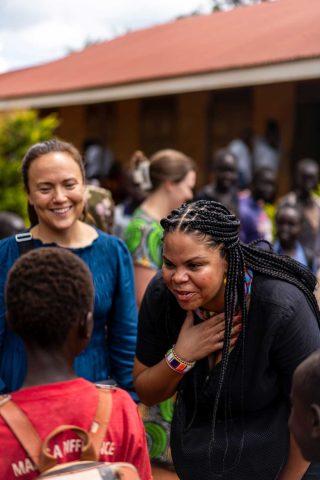
The trip was part of the advocacy academy organized by the Helsinki Parish Federation and Finn Church Aid, which offered MPs the opportunity to learn about the practical implementation, challenges and opportunities of development cooperation in Uganda.
In addition to the MPs, the trip was attended by Leo Svahnbäck, Deputy Head of Mission at the Finnish Embassy in Nairobi, Juha Rintamäki, Director of the Helsinki Parish Union, and a group of FCA staff led by the Country Director Wycliffe Nsheka.
Many things impressed the members of parliament during the trip, but one of the highlights was a visit to schools supported by FCA in the Kiryandongo refugee settlement.
“It was really touching to see the conditions in which the children study there, and also to see their joy, their light and their faith in the future. We Finns know that education is the key to better opportunities. It was clear that these children believe in it too,” says Partanen.
Obstacles to education were huge, however; including a huge lack of food, teaching facilities, teachers and clean drinking water in the schools.
“It made me aware of what is happening in Uganda as a result of these aid cuts and what the future holds for these children,” says Partanen.
Cuts in development aid hit Uganda hard
Uganda is currently home to nearly 2 million refugees who have arrived from both neighbouring countries and further afield. The Kiryandongo refugee settlement is already home to 100,000 people, and more are arriving all the time, particularly those fleeing the brutal armed conflict in Sudan.
The situation has become more difficult due to the cuts, and people living in the refugee settlement are faced with unreasonable choices.
“I felt that even small things matter. People working here need to choose between treating a malnourished baby and providing food for a small schoolchild, for example. These are such difficult choices that it seems unreasonable that they should even have to be made,” says MP Miapetra Kumpula-Natri.
However, she highlights the importance of hope and helping others.
“But when you see that every bit of help and every school classroom built is moving things in the right direction, you don’t feel hopeless, but rather that the work being done, and the work that FCA is doing, is important. It’s not worth throwing in the towel, but rather doing what you can. We know that the situation will get worse. It is good to face the truth, but we must not give in to despair,” she continues.
Kumpula-Natri and Partanen agree that Finland has its share of responsibility and that development cooperation can achieve a great deal.
Kumpula-Natri points out, for example, that it makes sense to build a school building for 44,000 EUR when it will be in use for years. Building a few extra classrooms can have a big impact on whether three or nine children sit at the same desk.
“Development cooperation funding needs to have advocates. People need to know that it takes very little to save babies, children and families from starvation. A small effort can go a long way,” says Kumpula-Natri.
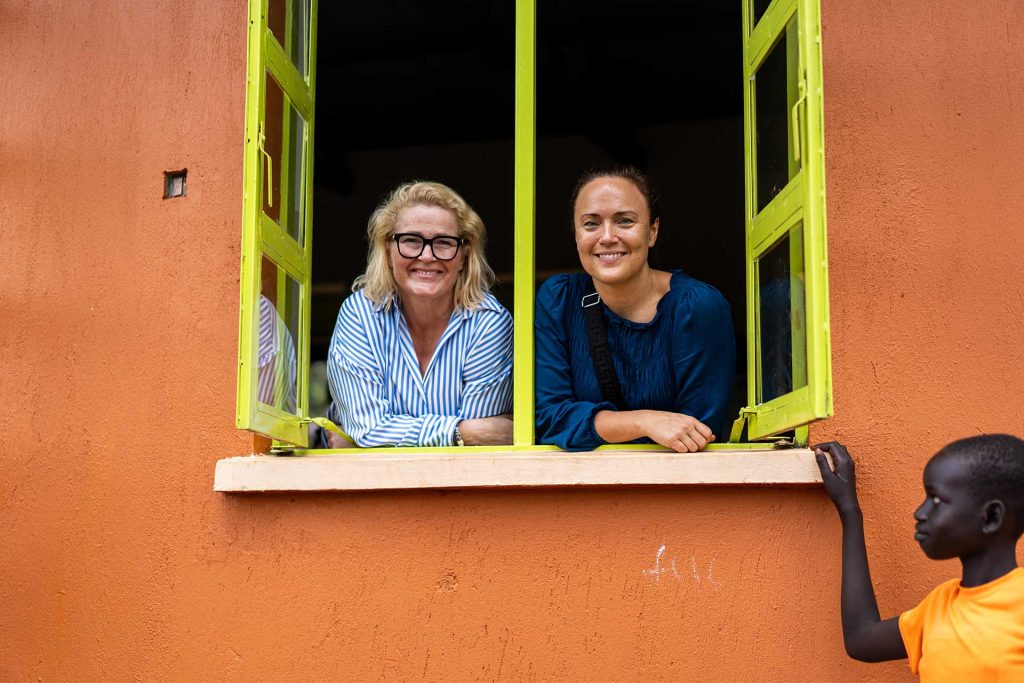
Partanen also cites the acceleration of climate change and its effects as an example.
“Even here, people say that the rainy season has already changed. If we don’t do enough to prevent change and support these countries, but instead close ourselves off, I fear how the situation will develop.”
“Uganda does not want to be dependent on our support; they want to find ways to cope on their own, but they need help to do so,” Partanen continues.
Women’s groups were a highlight of the visit
In addition to the refugee settlement, the delegation visited Mityana. There FCA, in cooperation with Women’s Bank, supports local women entrepreneurs. The women receive support in areas such as training in farming and setting up and running savings and loan groups.
“It was great to see that women have the opportunity to move from housework to the cash economy. When you can sell eggs in a cooperative and increase the number of your own chickens, for example, it provides food for a larger group of people,” Kumpula-Natri praises the project.
Many women also use loans from savings groups to start their own small businesses. This gives women financial autonomy.
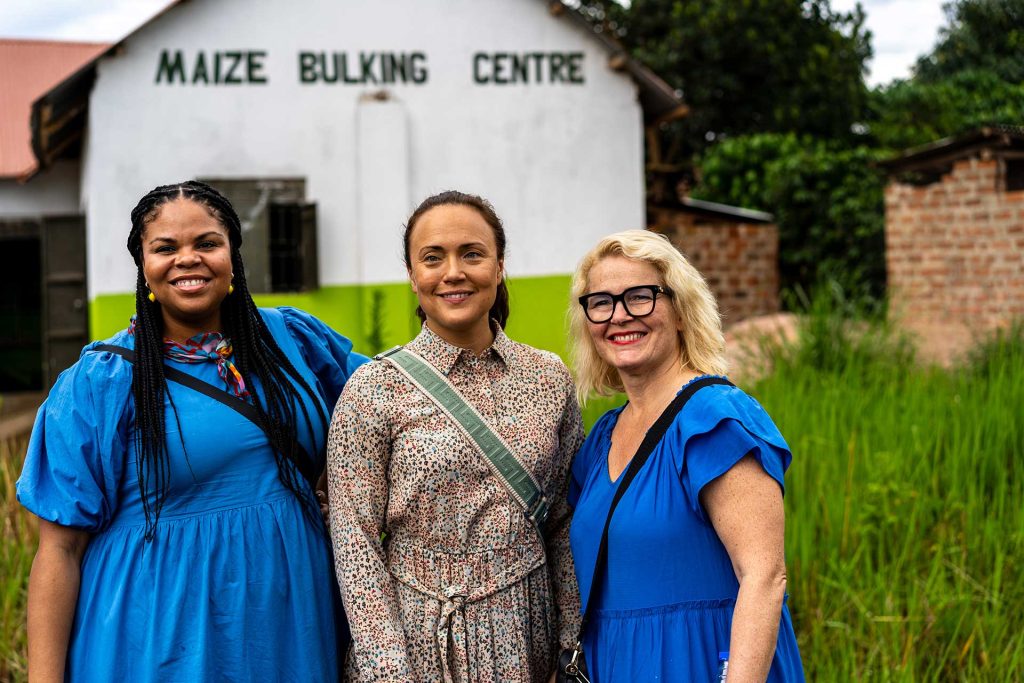
Partanen also recalls a memorable moment in Mityana.
“Above all, I was touched when the women told me that violence against them had decreased at home now that they were able to grow crops and bring food to their families.”
“The women were also keen to tell us how they work from morning till night. It felt really empowering when they talked openly about the fact that many men do not contribute much to supporting their families. It was touching to think about how different the situation is in Finland compared to this.”
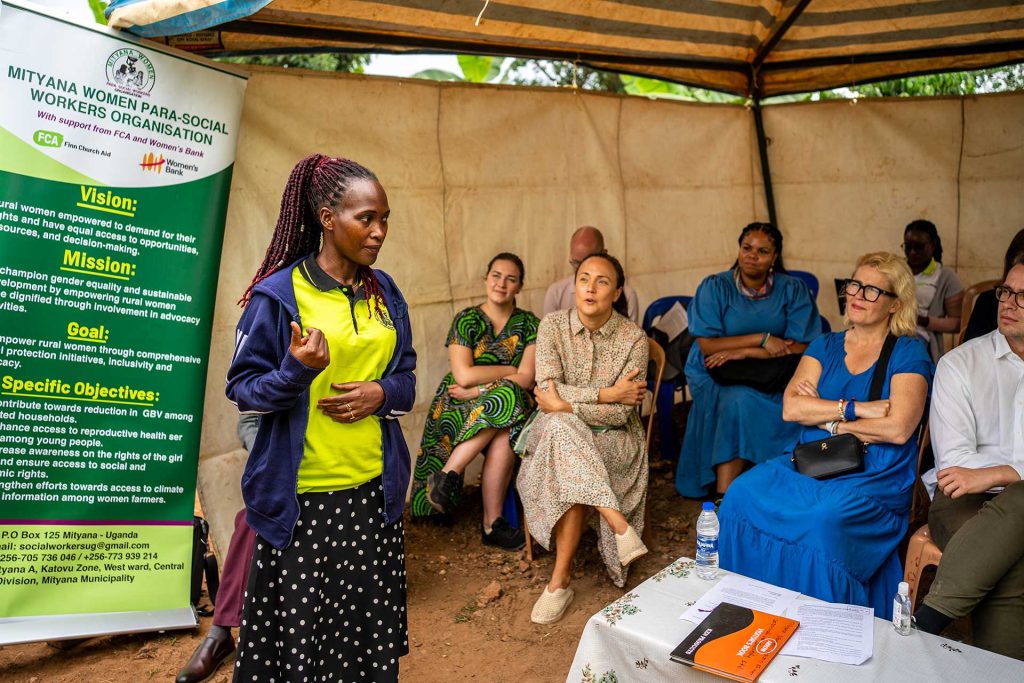
New forms of development support skilled refugees
The MPs also visited FCA’s DICE (Digital & Creative Economies) project in Uganda’s capital Kampala, where young refugees receive training in creative fields.
“When we think about the development we have in Europe and Finland, and the opportunities it offers for improving our standard of living, it is important to ensure that developing countries are able to keep up with this development. If we don’t take care of that, the gap between the West and developing countries will grow. It was wonderful to see the kind of work that has been done in this area,” says Partanen.
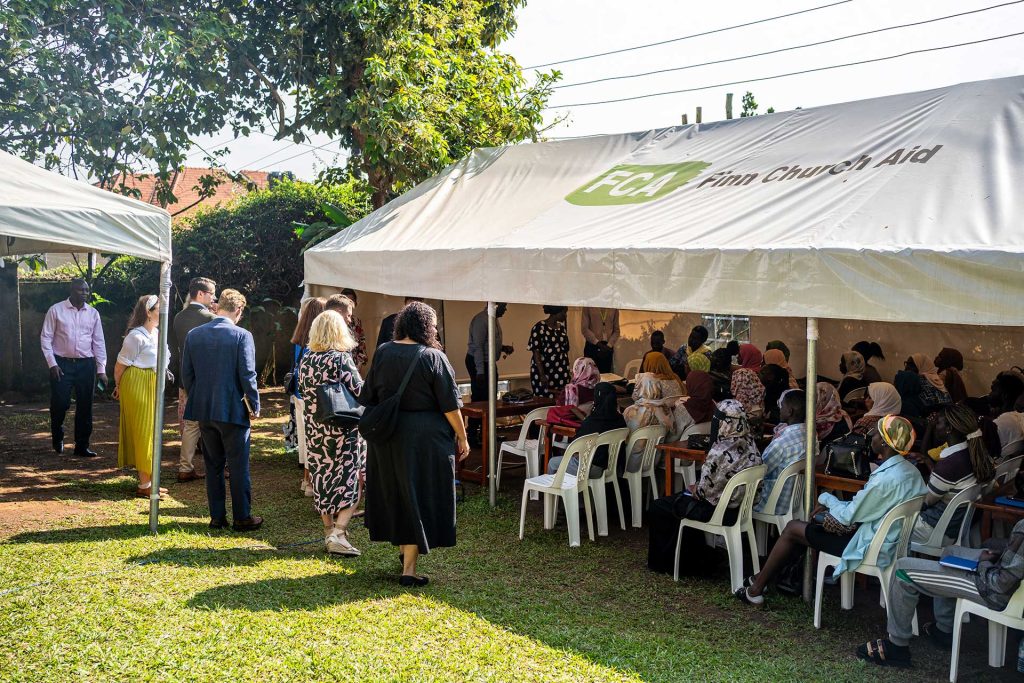
The project also includes a component that helps refugees find work in third countries in cooperation with the UN Refugee Agency (UNHCR). Currently, educated refugees have had the opportunity to find work in their field in countries such as Canada, Italy and Belgium.
“Here we have a situation where educated young people or those who have completed basic education are left with nothing. We know from many crises and conflicts that idle young people can be recruited to the so-called dark side, to various terrorist groups or armies. It’s great that one of the projects here focuses on helping young adults who have completed their schooling to move forward in life,” says Kumpula-Natri.
“It’s a great model where, with additional training in IT skills and English, you can apply for jobs directly in partner countries. This benefits the host country, which gets people straight into work and can sort out the necessary paperwork for them to stay in the country. It also benefits the person who has had to leave their home country and can now rebuild their life with enthusiasm.”
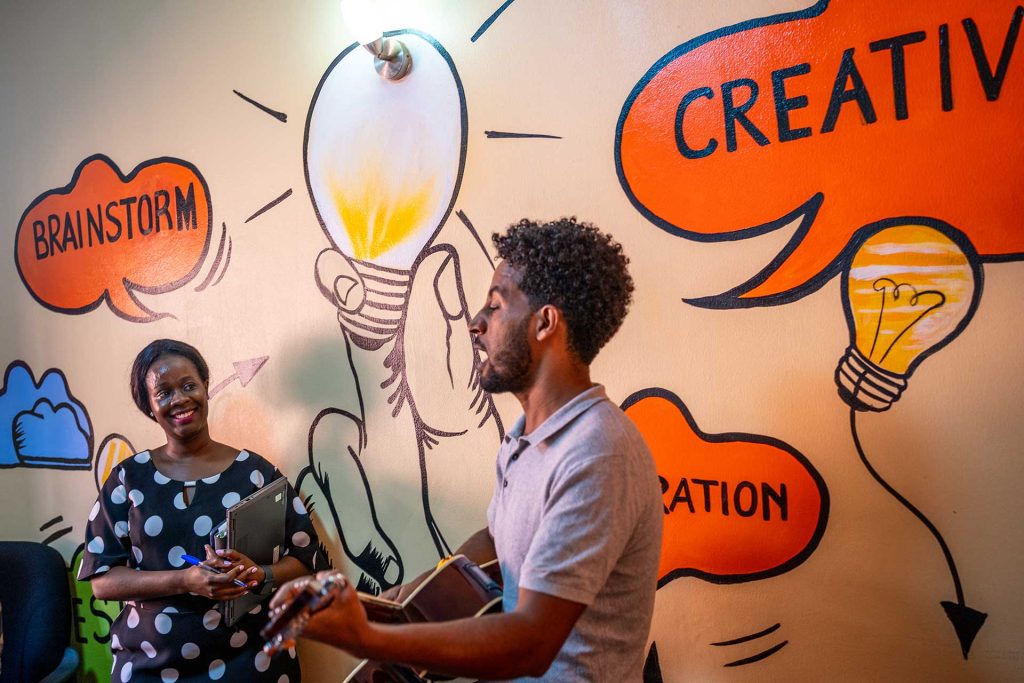
Members of Parliament met with Ugandan decision-makers
The trip was funded by the Helsinki Parish Union, whose aim was to give the MPs an opportunity to familiarise themselves with field work and gain a realistic understanding of it.
“The delegation gained more knowledge about international diaconia and the situation in Uganda in general, where FCA is heavily involved in projects to improve education and living conditions. The trip will certainly stimulate discussion in various contexts. Those who took part in the trip are now well prepared for those,” says Juha Rintamäki, director of the Helsinki Parish Union.

In addition to learning about field work, Rintamäki says it was important for the MPs to meet Ugandan decision-makers and other actors.
The MPs met with key Ugandan politicians, such as Thomas Tayebwa, Speaker of the Ugandan Parliament, Dr Kedrace Turyagyenda, Permanent Secretary of the Ministry of Education and Sports, and Lilian Aber, State Minister for Disaster Preparedness and Refugees.
The MPs discussed the massive cuts to development cooperation in 2025 with the Ugandan decision-makers.
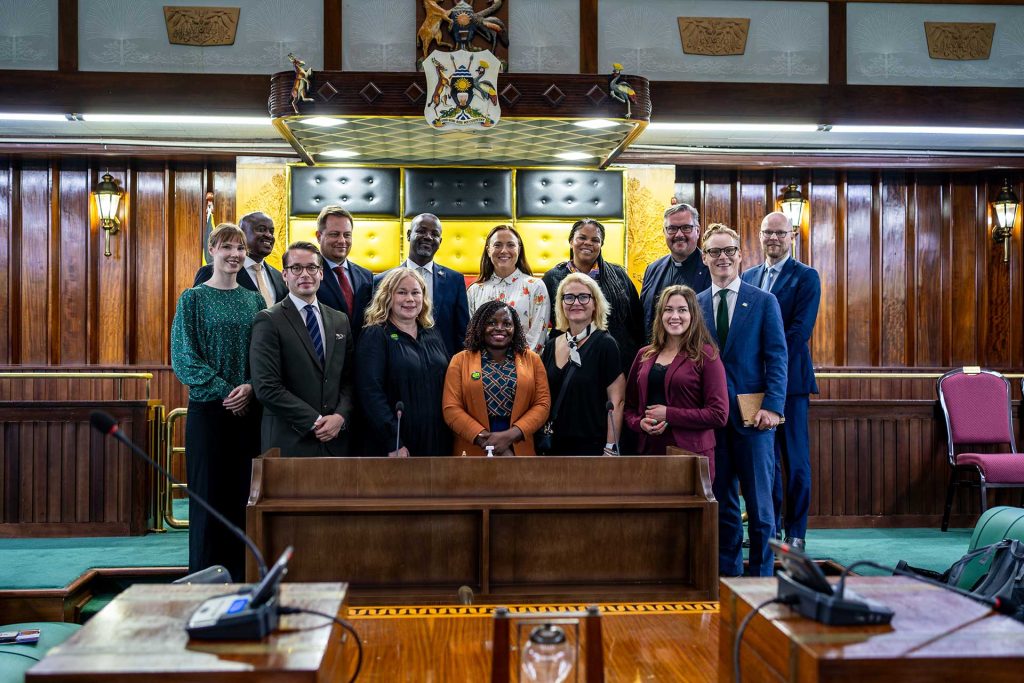
“Uganda is a major recipient of refugee flows, a developing country with challenges in terms of funding its own health care and education. It became clear that they too will have to consider their priorities in the future. When you consider the number of refugees Uganda has taken in and the fact that funding is now being cut, they will certainly have to consider how they can support the refugees,” says Partanen.
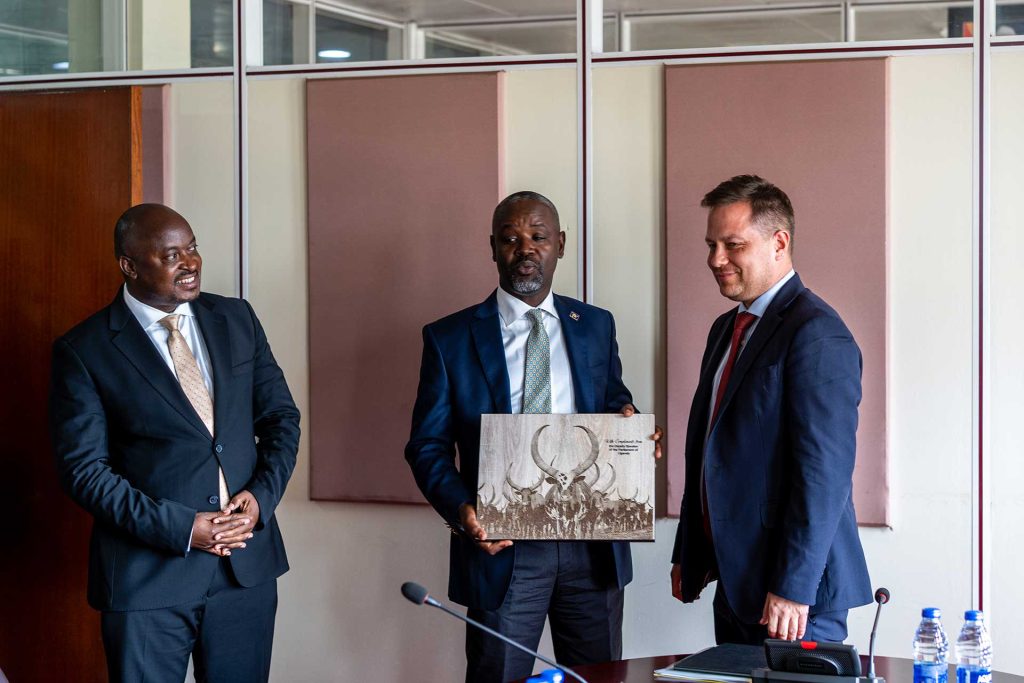
Development builds bridges to hope and well-being
The parties also discussed exports and the problems of international trade from Uganda’s perspective. For example, no more than a quarter of coffee exports remain in Uganda, with the rest disappearing into the export chain.
Kumpula-Natri highlights the importance of the rules of global trade. It is not just a question of import duties.
” The global value chain is indeed skewed and does not allow regions to develop. When we do not have a lot of coffee producers in Europe, for example, we cannot even say that we are protecting our own market. The European Union does not collect import duties from LDC countries such as Uganda. However, the value chains are such that the producing regions receive a very small share of the value of the coffee. A better market would give the regions the opportunity to develop,” she says.
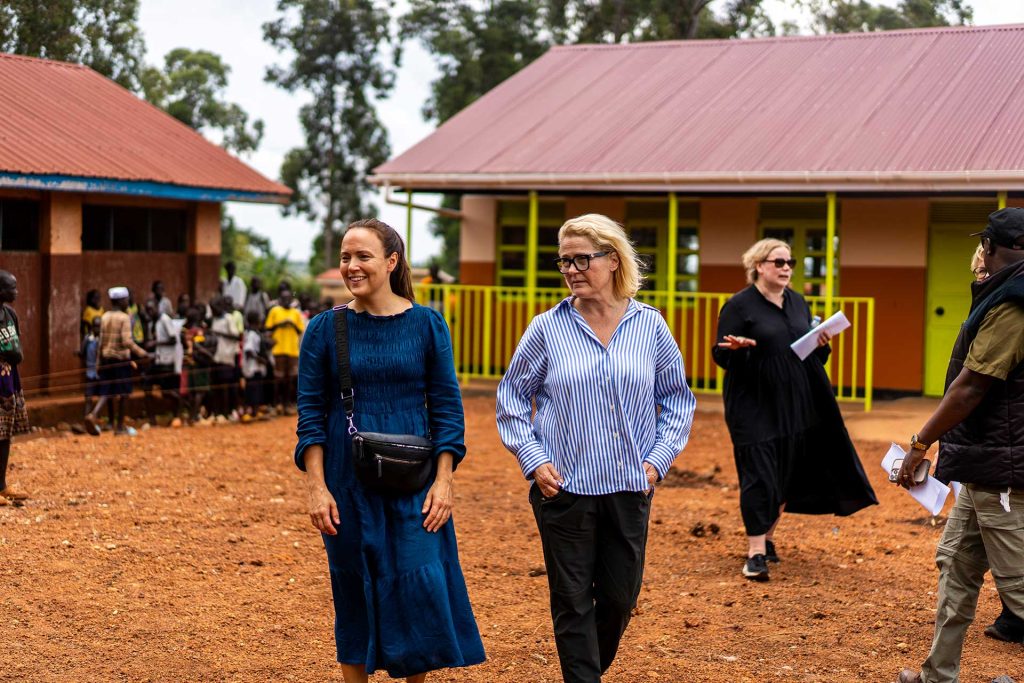
In addition to the quality of the work, she is impressed by FCA’s good connections with political decision-makers in Uganda.
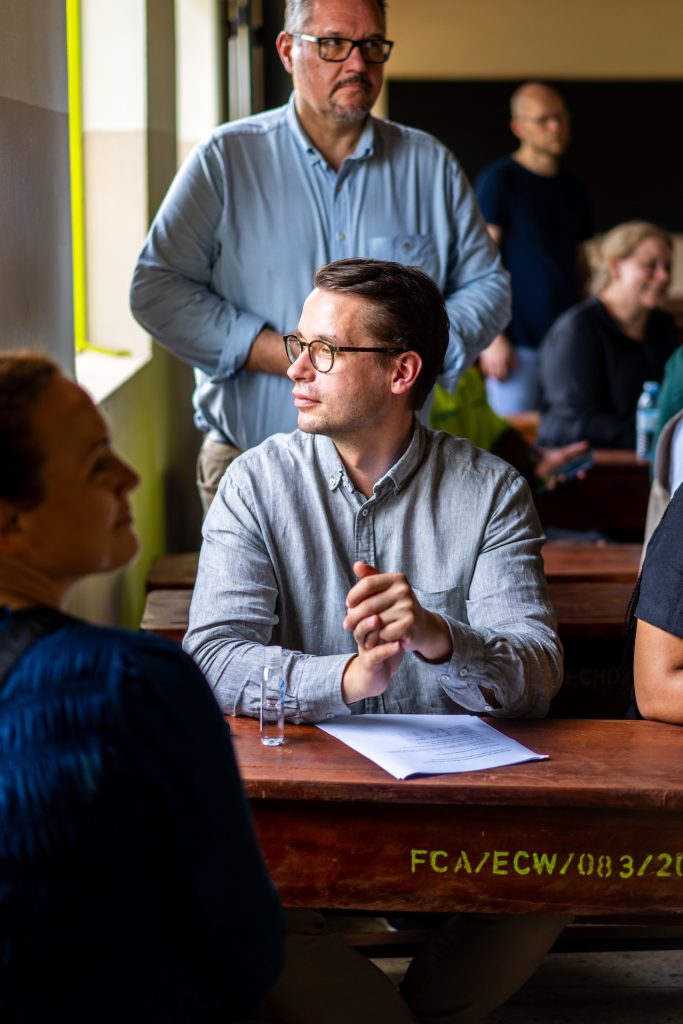
“The whole system is professional and modern, but also very inclusive. I saw that Finn Church Aid can be trusted and that the aid it provides is effective and has a real impact. It was great to see with my own eyes how the system works. While we were here, many newly built classrooms were opened, which FCA had built. It felt absolutely fantastic that these classrooms will be put to use and make everyday life in schools easier,” Kumpula-Natri sums up.
Partanen says that the visit gave her a lot of hope.
“It gave me hope to see the children going to school and how it has affected their lives. Above all, it was touching that the children were not only taught to read, write and speak English, but were also taught about their rights. It also gives hope that when you learn more about your rights and study, it becomes a path to the future. That creates hope.”
